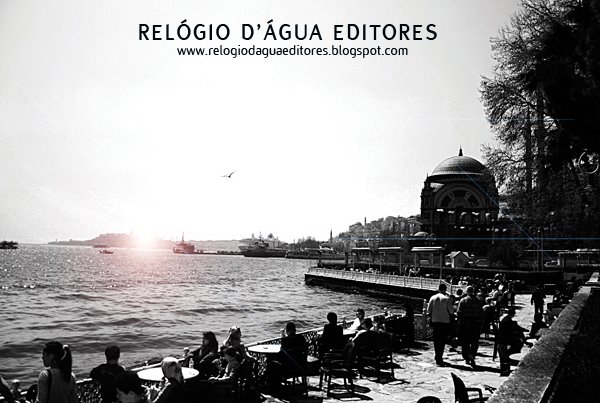«A prosa de William Trevor é atenta na sua calma e adstringente no seu realismo, no entanto, esta clareza sóbria deixa entrever uma arguta inteligência moral que é ao mesmo tempo íntima e forense. Trevor emparelha os efeitos literários com os seus opostos: uma descrição oblíqua consegue transmitir uma verdade lancinante, a criação alusiva da atmosfera dá a ver verdades psicológicas vívidas.»
[Rónán McDonald, TLS, «William Trevor's quiet communion», 16JUN2010]
De William Trevor
a Relógio D'Água irá publicar
a Relógio D'Água irá publicar
After Rain (contos)
Love and Summer (romance)
Felicia's Journey (romance)
Leia na íntegra o conto «Men of Ireland» de William Trevor
«The man came jauntily, the first of the foot passengers. Involuntarily he sniffed the air. My God! he said, not saying it aloud. My God, you can smell it, all right. He hadn’t been in Ireland for twenty-three years.
He went more cautiously when he reached the edge of the dock, being the first, not knowing where to go. “On there,” an official looking after things said, gesturing over his shoulder with a raised thumb.
“O.K.,” the man said. “O.K.”
He went in this direction. The dock was different, not as he remembered it, and he wondered where the train came in. Not that he intended to take it, but it would give him his bearings. He could have asked the passengers who had come off the boat behind him but he was shy about that. He went more slowly and they began to pass him, some of them going in the same direction. Then he saw the train coming in. Dusty, it looked; beaten up a bit, but as much of it as he could see was free from graffiti.
He was a shabbily dressed man, everything he wore having been abandoned by someone else. He had acquired the garments over a period, knowing he intended to make this journey—the trousers of what had been a suit, brown pin-striped, worn shiny in the seat and at the knees, a jacket that had been navy blue and was nondescript now, the khaki shirt he wore an item once of military attire. His shoes were good, in one of his pockets was an Old Carthusian tie, although he had not himself attended Charterhouse. His name was Donal Prunty. Once big, heavily made, he seemed much less so now, the features of a face that had been florid at that time pinched within the sag of flesh. His dark hair was roughly cut. He was fifty-two years old. (...)»



Sem comentários:
Enviar um comentário